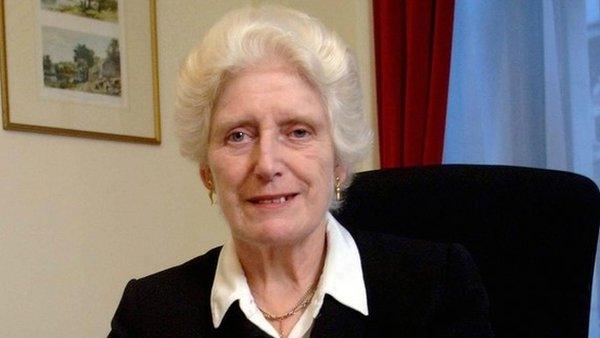A survivor's story: Trapped in a subculture of child abuse
- Published
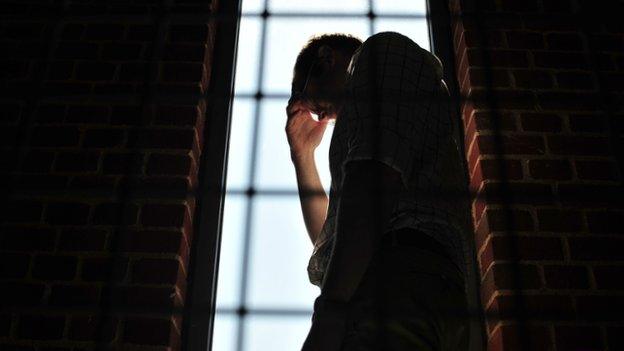
'Michael' claims he was trafficked around England and Wales to be abused by paedophiles
With numerous inquiries into alleged child abuse either up and running or poised to begin, is there a risk the individual voices of victims might get lost? One survivor believes so. This is his story.
"I was trafficked to Wrexham, Cornwall, Plymouth and London and forced to perform sex acts on men there."
The person making the claim - we will call him Michael - was at the time a young teenager in the care of Suffolk County Council.
Now in his late 30s, and still living in Suffolk, Michael's is a case which demonstrates the great difficulty survivors face in trying to get their voices heard.
He told the authorities about the abuse 20 years ago. He claims nothing was done. He raised them again with both Suffolk Police and the county council again last year.
Michael claims again, nothing has been done. Worse still, he maintains the authorities have actively worked to discredit him in order to ignore his claims.
His allegations against the police and the county council have been put in detail to both organisations by the BBC. Suffolk Police said it would not comment on individual cases and the council said an investigation was under way.
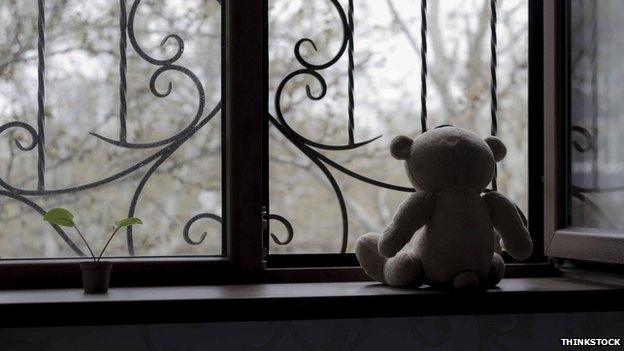
Michael says society needs to be more vigilant in the protection of children and young people
His account of abuse spans several years at different locations. On the surface these episodes of abuse might appear unrelated, but Michael believes they were connected in that an abuser who knew an abuser knew an abuser. And he was effectively passed along that chain.
"It wasn't quite a paedophile ring," says Michael. "More an affiliation of abusers who all knew each other."
The physical and sexual abuse, Michael says, began at the hands of his sister when he was aged between three and four and continued later when a boyfriend of his mother allegedly seriously sexually assaulted him.
He was taken into local authority care aged 13 to be housed at a now-closed adolescent unit in Suffolk where, after refusing to perform a sex act on a visitor, he was locked in a cupboard for 32 hours. On finally being released, he was sexually assaulted.
He was then moved to a children's home - again, now closed - where, he says, a number of adults, including uniformed police officers, abused children.
He told of one man who gave sweets or cigarettes to children who masturbated him.
Young people were taken from both the unit and children's home to north London to perform oral sex and were anally raped by men.
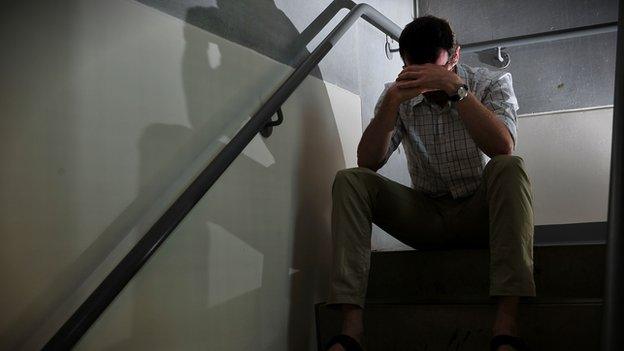
An investigation into 'practice issues' at Suffolk County Council is currently under way
Children who refused, he says, were beaten.
In 1992 he was moved to the Stowmarket home of a single male foster carer where he was to remain for about six months.
The abuse started on the fourth night and escalated, says Michael, from being asked to perform sex acts (to then being told he was dirty and threatened about reporting the abuse) to rape.
It did not end there.
Michael was taken on "trips away" to Plymouth, Portsmouth, Wrexham, Cornwall and Islington, where he would be expected to perform sex acts for other abusers.
Occasionally, the children were given a little money - usually a £10 note.
"You'd find yourself thinking, at least I got a 'tenner' for it," says Michael.
An assessment of his foster carer's suitability for the role was carried out by the local authority and has been seen by the BBC.
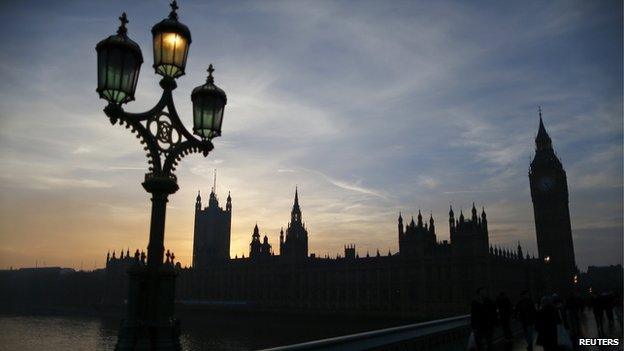
Michael says he was trafficked to various parts of the UK including the west country, north Wales and London
It tells how the foster carer's "major source of fulfilment and satisfaction has been with young people" and that children "should have some responsibility and would want to give them this within the household regime". It also mentions how he had given up "often two evenings per week" to help out a school currently under at the centre of a separate major investigation into child sex abuse.
This foster carer was later - after caring for Michael - convicted of sexually abusing another boy.
On leaving Stowmarket, Michael describes living in "slave" conditions on a country estate in Suffolk where he came into contact with the now dead Peter Righton, a consultant to the National Children's Bureau who was eventually unmasked as a paedophile. Righton repeatedly sexually abused him, Michael claims.
Michael claims a senior police officer had visited the estate to raise concerns about Righton's presence there. Suffolk Police would not respond to this allegation or say whether there had been any investigation into alleged activities at the estate.
The abuse largely stopped after he left care - though Michael says he was occasionally taken to parties, where he would be paid to commit sex acts.
But he tells how men at these parties would demand "fresh flesh" and how some who had already abused him lost interest in him.
Looking back at the abuse he suffered, Michael says: "It was just horrendous.
"Society needs to be more proactive with these things."

Child abuse investigations
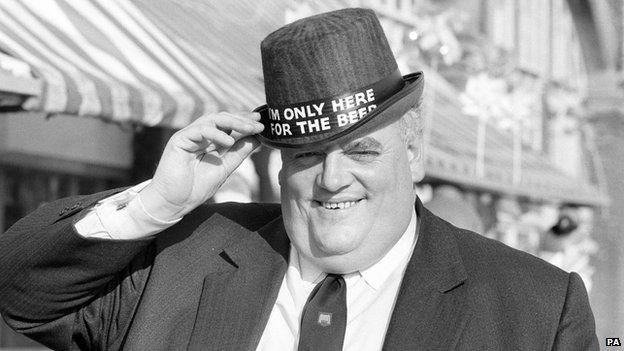
Cyril Smith died in 2010 without ever facing the abuse claims against him
The Metropolitan Police's Operation Fernbridge, which is investigating allegations of a network of abusers in the late 1970s and 1980s at the former Elm Guest House in Barnes, south-west London - the scene of alleged parties involving MPs and other members of the establishment
Greater Manchester Police are conducting a new investigation into allegations of abuse by Cyril Smith in Rochdale, including at Knowl View, a children's home which closed in 1994
28 NHS hospitals have published reports on allegations involving the late BBC DJ and presenter Jimmy Savile. Four other hospitals are due to report in the autumn. A former judge is also looking into whether culture and practice at the BBC enabled Savile to carry out the sexual abuse of children
Operation Yewtree - set up following Savile's death in 2011 - has seen a string of high-profile entertainers being prosecuted for alleged sex crimes, external
And local authorities have been instructed to investigate claims that Savile abused children at 21 children's homes and schools in England in the 1960s, 70s and 80s
Operation Cayacos, which is among numerous other ongoing historical child abuse investigations around the UK, is investigating allegations of a paedophile ring linked to Peter Righton, a founding member of the Paedophile Information Exchange, a group that campaigned to make sex between adults and children legal

He says the council "conspired" to have him "declared mentally ill, and have consistently ignored my complaints of historic sexual abuse."
This, he claims, has enabled "other agencies to ignore complaints I have made".
He has formal complaints lodged against both Suffolk Police and the county council.
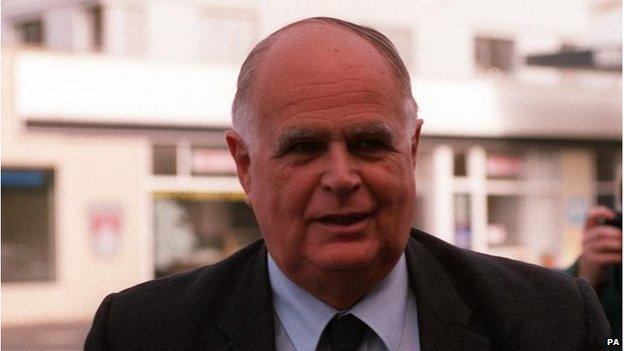
The now-dead Peter Righton used to live in Suffolk. Michael claims he was abused by Righton
Council documents seen by the BBC do indeed refer to Michael having a "dissociative personality disorder" and makes various other suggestions about his mental health - but this is contradicted by a consultant psychiatrist who assessed Michael late last year.
This psychiatrist, who works for the Norfolk and Suffolk Mental Health Trust, said "no history of mental illness has been found" and that Michael "showed no features of mental illness".
The confidential council documents also mention Michael was arrested on suspicion of rape and murder in 1994 - he was found to have had nothing to do with either crime.
A spokesman for the authority said: "We are aware of this complaint which, like any, we take very seriously.
"In terms of the allegations of historical abuse, we have advised the complainant to contact the police and have appointed an independent advocate to support him.
"In addition, we are also investigating related practice issues. We are currently awaiting the outcome of that investigation."

Michael describes living in "slave" conditions on a country estate in Suffolk where he came into contact with Peter Righton
The allegations were also put to Suffolk police which said: "Suffolk Constabulary takes all allegations of sexual assault seriously and the allegations are always fully investigated, however we are not able to comment on individual cases."
Michael, who is currently in contact with the Met Police, said he is not seeking any compensation in relation to his allegations or complaints against the authorities.
He does, however, want an apology and those involved held accountable.
Deborah Dennis, spokeswoman for the charity Stop it Now, which campaigns to prevent child sexual abuse, said: "Extreme cases such as this, which involve organised abuse, do happen but, thankfully, they are rare. Far more often abuse happens at home either by the family members of the abused or someone else very close to the victim.
"Often we think abuse only happens in big cities. It doesn't. In this case it is Suffolk. Any area can be affected by sexual abuse and exploitation."
- Published4 February 2015
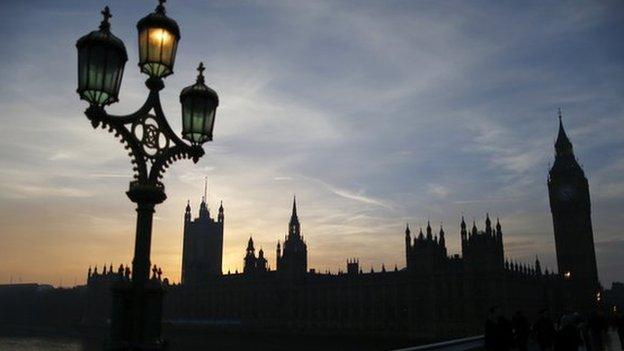
- Published8 July 2014
